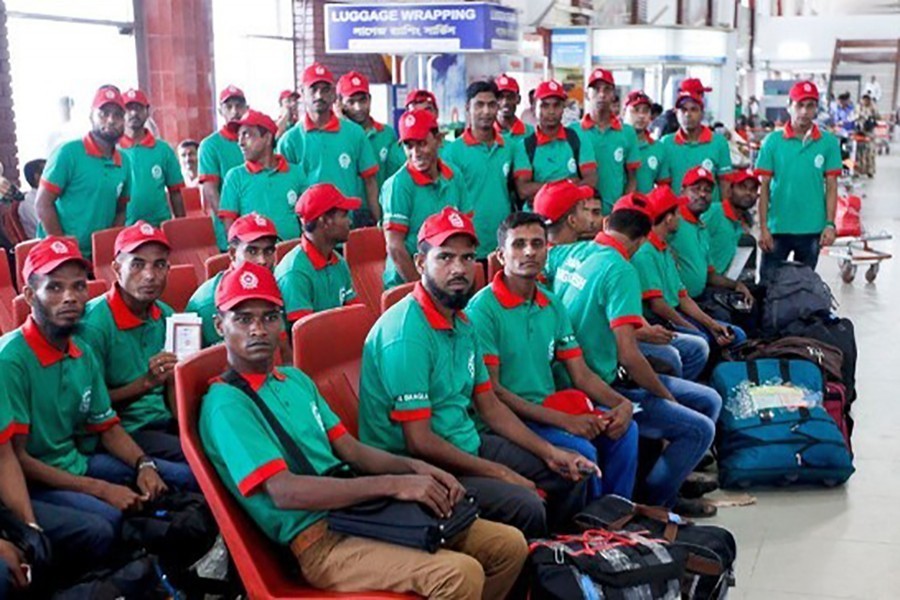After many years, the prospect of manpower export from Bangladesh appears bright. And, the country is in a strong position to bargain better terms for its workers, who until now have got raw deals from their employers abroad.
As the economies, both developed and developing, are coming out of a forced hibernation after more than a couple of years due to the Covid-19 pandemic, some of them need many expatriate workers to aid the economic recovery efforts. For Bangladesh, countries in the Middle East (ME) and Southeast Asia (SEA) remain the prime targets.
Malaysia is one SEA country that, according to a Reuters report published on June 14 last, has been turning down export orders worth billions of dollars. Its production units, including palm plantations and semi-conductor makers, cannot produce enough for the shortage of more than a million workers.
Malaysia had lifted a Covid-19 freeze on the recruitment of foreign workers in February last. But due to slow government approvals and the unusually long negotiation process with the workforce exporting countries like Indonesia and Bangladesh over workers' wages and rights protection, recruitment could not be started on time. Malaysian manufacturing industries, according to an estimate, need 600,000 workers, the construction sector 550,000 and the palm oil industry 120,000 workers. The construction and palm industries are the most potential areas for Bangladeshi job seekers.
Malaysia has agreed to recruit 200,000 Bangladeshi workers during the next one-year period. The SEA nation can accommodate more workers from Bangladesh. Malaysian industry and plantation owners are unhappy with the go-slow policy of the government on the recruitment of foreign workers, as they fear losing foreign customers.
Bangladesh expatriate welfare and overseas employment minister Imran Ahmed during the recent visit of Malaysian human resource minister Mr Srinivasan to Bangladesh disclosed that the average monthly wage of the prospective Bangladeshi recruits will be Tk.30,000. Given the current demand for workers worldwide, the wage should have been higher, industry insiders feel.
The demand for low-end workers is likely to be also higher in the coming months in the Middle Eastern countries that are now floating on cash because of soaring prices of fuel oils and gas. Citizens of some SEA and ME countries can still afford the luxury of shunning jobs that they consider 'dirty, dangerous and difficult'. They want the outsiders to do those jobs in exchange for a nominal wage.
Unfortunately, the employing countries have been taking advantage of the abundant supply of unskilled and semi-skilled workers, particularly from South Asian and SEA countries namely Bangladesh India Pakistan, Nepal, Indonesia and the Philippines. Had these countries taken a united move to ensure better wages and working conditions for their workers employed abroad, the situation possibly would have been different. The UN agency concerned also has not taken a strong approach in this connection.
The migrant workers doing 'dirty' jobs in a hostile environment and sending billions of dollars to their respective countries deserve better treatment. Offering incentives at a rate of 2.0 and 2.50 per cent for remitting money through official channels is not enough.The government needs to do more.
Zahidmar10@gmail.com


